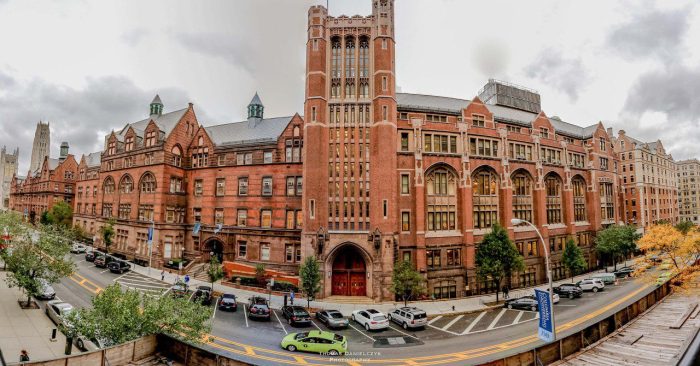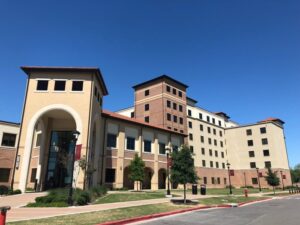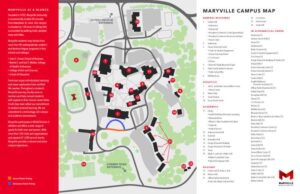In the ever-evolving landscape of education, universities dedicated to training teachers stand as beacons of knowledge and innovation. These institutions play a pivotal role in shaping the minds of future educators, equipping them with the skills and expertise to inspire and empower the next generation of learners.
From the halls of history to the cutting-edge frontiers of educational research, universities for teachers offer a diverse range of programs, exceptional faculty, and groundbreaking initiatives that foster excellence in teaching and learning. Join us as we delve into the vibrant world of these specialized institutions, exploring their unique offerings and the profound impact they have on the future of education.
Overview of Universities for Teachers

Universities dedicated to teacher education play a pivotal role in shaping the pedagogical landscape by providing specialized programs, cutting-edge research, and a supportive environment for aspiring educators. These institutions have a rich history, with many tracing their roots back to the late 19th century when the need for trained teachers became increasingly recognized.
The mission of universities for teachers is multifaceted. They aim to:
- Prepare future teachers with the knowledge, skills, and dispositions necessary for effective teaching.
- Conduct research to advance the field of education and inform best practices.
- Provide ongoing professional development opportunities for practicing teachers.
Universities for teachers offer a wide range of undergraduate and graduate programs, including:
- Bachelor of Education (B.Ed.)
- Master of Education (M.Ed.)
- Doctor of Education (Ed.D.)
These programs typically include coursework in:
- Educational theory and research
- Curriculum and instruction
- Assessment and evaluation
- Specialization in specific subject areas (e.g., math, science, English)
In addition to coursework, universities for teachers often provide field experiences, student teaching opportunities, and access to state-of-the-art facilities such as simulation labs and technology centers.
Programs and Curriculum

Universities for teachers offer a wide range of undergraduate and graduate programs tailored to prepare educators for various teaching levels and specializations.
Undergraduate Programs:
- Bachelor of Education (B.Ed.): A four-year program that provides a foundation in education theory, pedagogy, and content knowledge. Students can specialize in specific subject areas such as English, Mathematics, or Science.
- Bachelor of Arts (B.A.) or Bachelor of Science (B.S.) in Education: These programs allow students to major in a specific subject area while also completing coursework in education.
Graduate Programs:
- Master of Education (M.Ed.): A one- to two-year program that provides advanced training in education theory, research, and practice. Students can specialize in areas such as Curriculum and Instruction, Educational Leadership, or Special Education.
- Doctor of Education (Ed.D.): A three- to five-year program that prepares educators for leadership roles in research, policy, and administration.
Curriculum and Coursework:
University programs for teachers typically include a combination of coursework, field experiences, and research opportunities.
- Coursework: Courses cover topics such as educational psychology, curriculum development, instructional strategies, assessment, and diversity in education.
- Field Experiences: Students gain practical teaching experience through placements in schools and other educational settings.
- Research Opportunities: Graduate students may engage in research projects under the guidance of faculty mentors.
Faculty and Research
The faculty at these universities are highly experienced and knowledgeable in the field of education. They bring a wealth of expertise and experience to their teaching, ensuring that students receive the highest quality of instruction.
In addition to their teaching responsibilities, faculty members at these universities are also actively engaged in research. Their research spans a wide range of topics, including curriculum development, instructional design, and educational technology. The findings of their research have a significant impact on the field of education, helping to shape best practices and improve student learning outcomes.
Research Centers and Institutes
Many of these universities have established research centers and institutes that focus on specific areas of education. These centers and institutes provide faculty members with the resources and support they need to conduct cutting-edge research. They also offer opportunities for students to get involved in research projects, giving them hands-on experience with the latest educational research.
Career Paths and Alumni Success
Graduates of universities for teachers have a wide range of career paths available to them. They can pursue careers in education as teachers, administrators, or researchers. They can also work in related fields such as educational policy, curriculum development, or teacher training.
Universities for teachers provide their graduates with the knowledge and skills they need to be successful in their chosen careers. They offer a rigorous academic curriculum that covers all aspects of education, from teaching methods to curriculum development. They also provide opportunities for students to gain practical experience through internships and field placements.
As a result of the strong education they receive, graduates of universities for teachers are highly sought-after by employers. They are known for their expertise in education and their commitment to making a difference in the lives of students.
Alumni Success Stories
Many graduates of universities for teachers have gone on to make significant contributions to the field of education. Here are a few examples:
* Maria Montessori was an Italian physician and educator who developed the Montessori method of education. Her method is based on the idea that children learn best through hands-on experience and self-directed activities. Montessori schools are now found all over the world.
* John Dewey was an American philosopher and educator who is considered one of the founders of progressive education. His philosophy of education emphasizes the importance of student-centered learning and experiential learning. Dewey’s ideas have had a profound impact on education in the United States and around the world.
* Paulo Freire was a Brazilian educator who developed the theory of critical pedagogy. His theory emphasizes the importance of education in empowering people to challenge oppression and create a more just society. Freire’s ideas have been influential in the development of educational programs for marginalized communities around the world.
These are just a few examples of the many successful alumni of universities for teachers. Graduates of these universities are making a difference in the lives of students and communities around the world.
Innovation and Technology

Universities for teachers are embracing innovative approaches and technologies to enhance student learning. They are developing cutting-edge programs, research initiatives, and partnerships with schools to integrate technology into the curriculum and improve teacher preparation.
These universities are using virtual reality (VR) and augmented reality (AR) to create immersive learning experiences for students. VR simulations allow students to practice teaching in realistic classroom settings, while AR can be used to overlay digital content onto the real world, providing students with additional information and resources.
Cutting-Edge Programs
Many universities for teachers are offering cutting-edge programs that focus on technology integration in the classroom. For example, the University of California, Berkeley’s Master of Arts in Education program in Learning, Design, and Technology prepares teachers to use technology to design and deliver engaging learning experiences.
The University of Texas at Austin’s College of Education offers a Master of Education in Educational Technology program that focuses on the use of technology to improve teaching and learning. Students in this program learn how to use technology to create lesson plans, assessments, and other instructional materials.
Research Initiatives
Universities for teachers are also conducting research on the use of technology in the classroom. This research is helping to identify the most effective ways to use technology to improve student learning.
For example, a study by researchers at the University of Michigan found that students who used VR to practice teaching showed significant improvements in their teaching skills.
Partnerships with Schools
Universities for teachers are partnering with schools to implement innovative technology-based teaching methods. These partnerships allow universities to test new technologies in real-world settings and provide teachers with professional development opportunities.
For example, the University of Southern California’s Rossier School of Education has partnered with the Los Angeles Unified School District to create the USC-LAUSD Teacher Technology Academy. This academy provides teachers with training on how to use technology to improve student learning.
Questions Often Asked
What are the unique characteristics of universities for teachers?
Universities for teachers are distinguished by their specialized focus on teacher education, offering a comprehensive range of programs tailored to the needs of aspiring and practicing educators. They foster a collaborative learning environment, connecting students with experienced faculty and providing hands-on field experiences to bridge theory and practice.
What are the career paths available to graduates of universities for teachers?
Graduates of universities for teachers embark on diverse and rewarding careers in education. They become classroom teachers, administrators, curriculum developers, educational researchers, and policy makers, contributing their expertise to shape the future of learning and teaching.
How do universities for teachers embrace innovation and technology?
Universities for teachers are at the forefront of educational innovation, integrating cutting-edge technologies into their programs and research. They leverage virtual reality, simulations, and data analytics to enhance student learning, foster collaboration, and personalize instruction, preparing educators to meet the demands of the 21st-century classroom.




